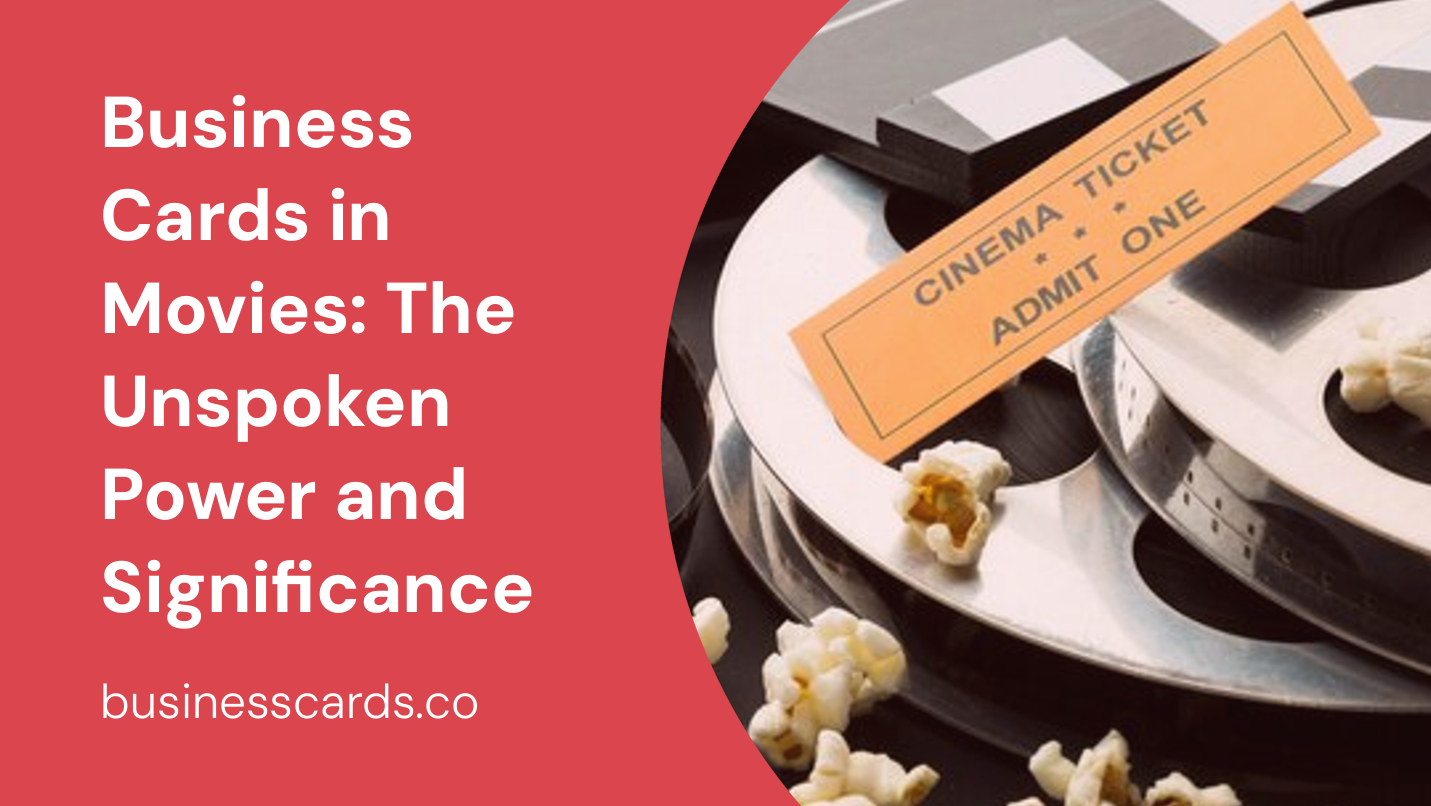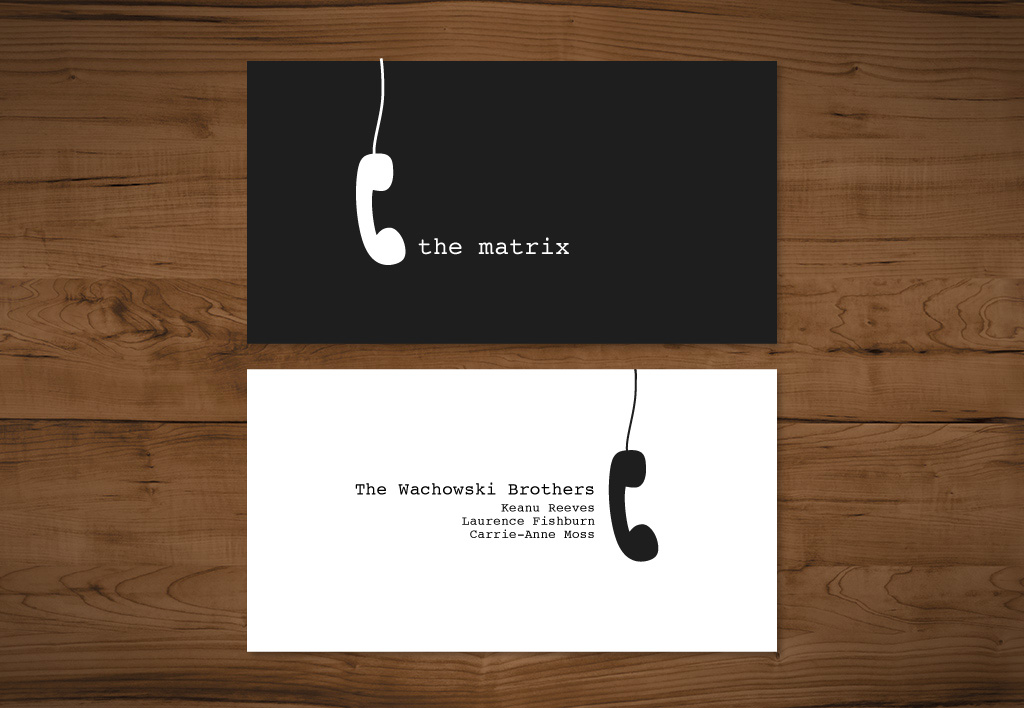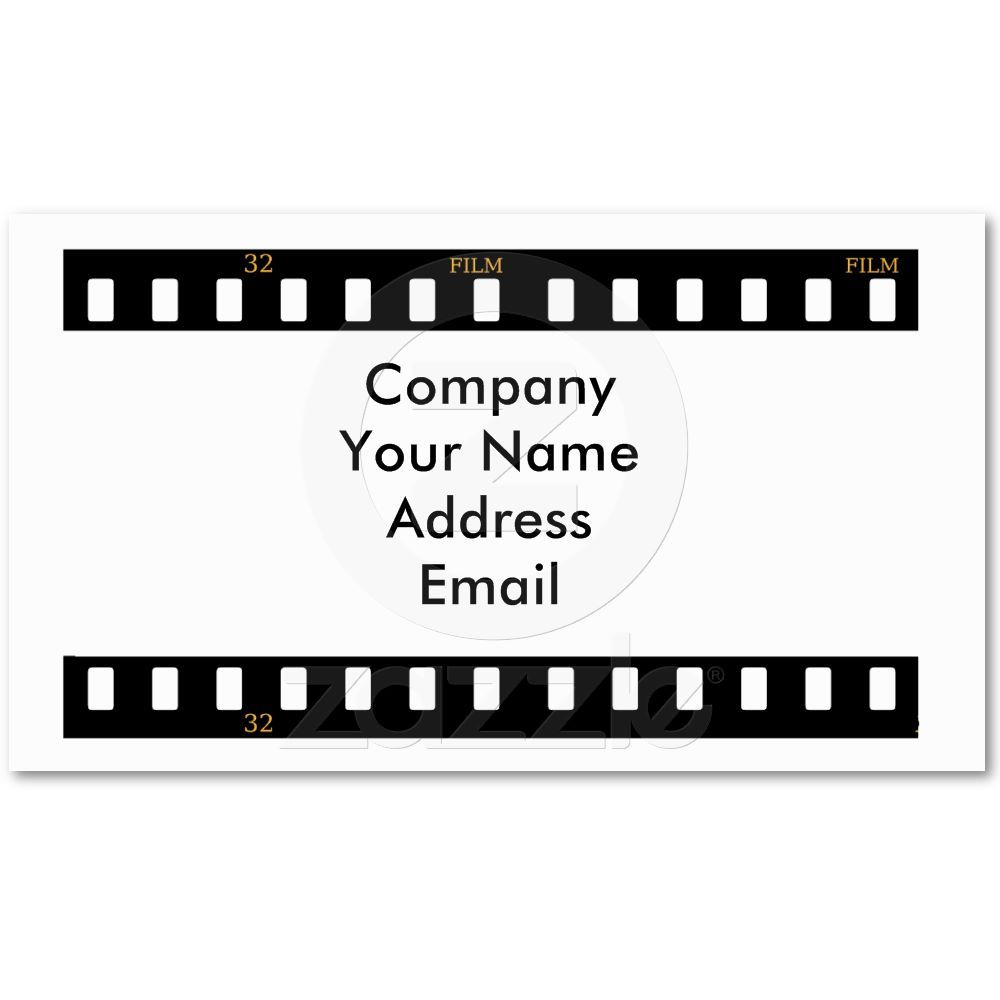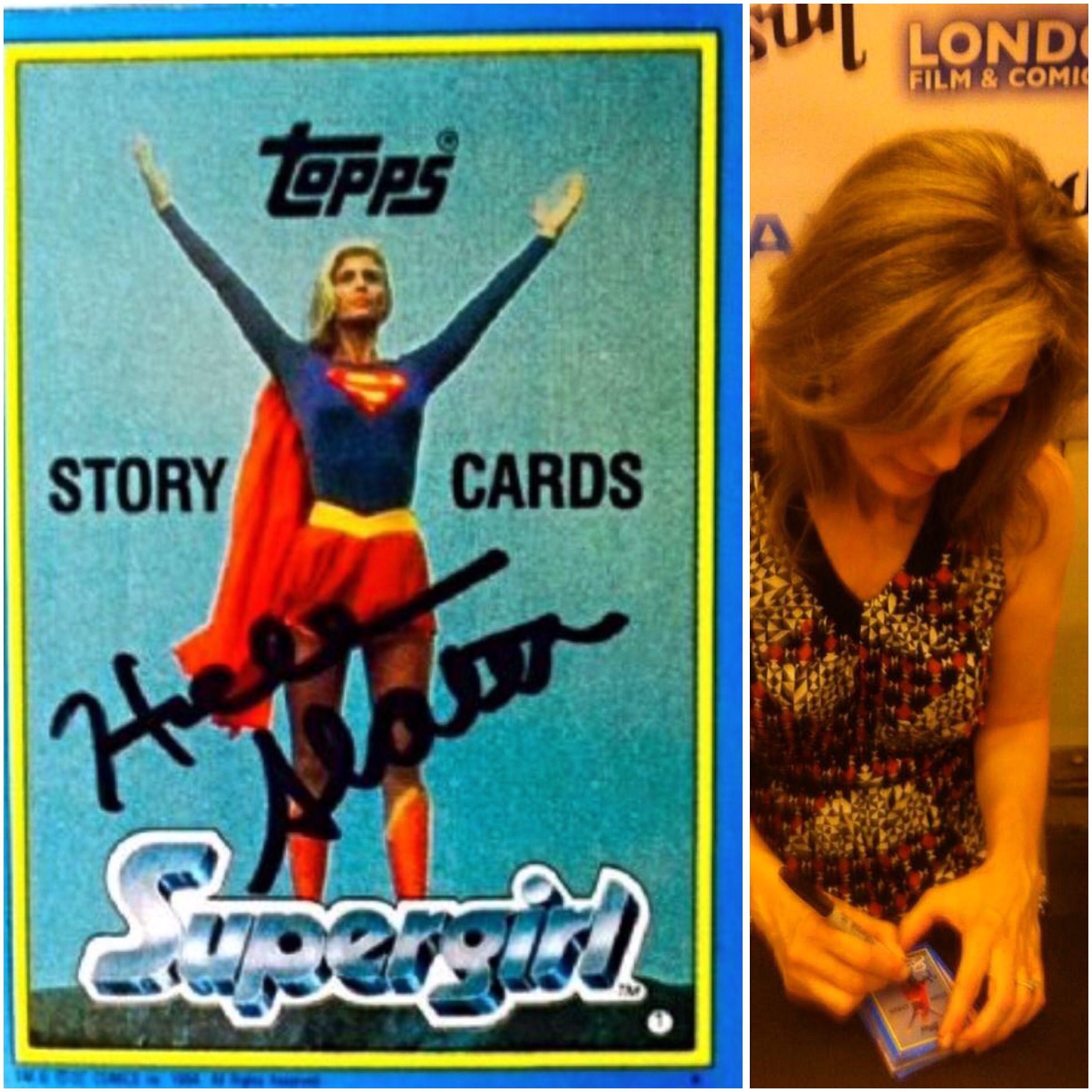
In the world of business, first impressions matter. And what better way to leave a lasting impression than with a well-designed business card? Over the years, movies have often used business cards as a powerful storytelling element, subtly showcasing the characters’ personalities, status, and aspirations. From iconic scenes to memorable quotes, business cards in movies have become more than just pieces of paper, they have become symbols of power, ambition, and connection.
The Astonishing Debut: American Psycho

One cannot discuss business cards in movies without mentioning the iconic scene from “American Psycho.” In this psychological thriller, the protagonist, Patrick Bateman, played by Christian Bale, obsesses over business cards to the point of homicidal mania. The scene showcases a group of corporate executives comparing their business cards with the utmost seriousness and scrutiny.
The Power Dynamics Behind the Card Swap
In “American Psycho,” the business cards serve as a reflection of the characters’ insecurities and ambitions. The act of exchanging cards becomes a power play, with each character trying to outdo the other. This scene highlights the cutthroat nature of the business world and the importance placed on material possessions, even if it means descending into insanity.
The Unforgettable Connection: Lost in Translation

In the critically acclaimed film “Lost in Translation,” a subtle but powerful moment occurs when the characters played by Bill Murray and Scarlett Johansson exchange business cards. The cultural differences between the American actor and the young woman he encounters in Tokyo are beautifully captured in this scene.
The Language Barrier in Business Cards
The film highlights the significance of business cards as a means of connection and understanding between people from different cultures. The characters struggle to communicate verbally, but the exchange of cards serves as a bridge, enabling them to connect on a deeper level. The business cards act as a tangible representation of their desire to connect and find common ground despite their language barriers.
The Symbol of Identity: American Beauty
In the film “American Beauty,” Lester Burnham’s transformation from a suburban middle-aged man to a free-spirited individual begins with a simple business card. After quitting his soul-sucking job, Lester takes a clerk position at a fast-food restaurant. However, he takes pride in his new role, going so far as to create a business card that reads, “Lester Burnham, Fast Food Knight.
The Reinvention of Self through Business Cards
Lester’s business card symbolizes his newfound sense of identity and personal freedom. It represents his rebellion against societal norms and expectations. For him, the card is not merely a piece of paper but a declaration of self-worth and individuality.
The Romantic Connection: Say Anythingâ_x0080_¦

In the beloved romantic comedy “Say Anythingâ_x0080_¦,” the character Lloyd Dobler, portrayed by John Cusack, tries to win the heart of Diane Court, played by Ione Skye. In a well-known scene, Lloyd presents Diane with a business card for a fictional company he created called “Dobler’s Kickboxing.
The Business Card as a Romantic Gesture
Despite its simplicity, Lloyd’s business card is a testament to his unwavering determination and creativity. By creating a business card specifically for their potential relationship, he demonstrates his commitment and his willingness to go above and beyond to capture Diane’s heart. The gesture is both charming and memorableâ_x0080__x0094_a representation of his unique and unconventional approach to love.
The Survival Tactic: American Gangster

In the crime drama “American Gangster,” the character Frank Lucas, played by Denzel Washington, displays a shrewd understanding of business card etiquette during a high-stakes negotiation scene. When challenged by a rival gangster’s associate, he merely slides his business card across the table, asserting his dominance and control over the situation.
The Power Play of Business Cards in Criminal Circles
In the world of organized crime depicted in “American Gangster,” business cards become tools of influence and intimidation. Frank Lucas’ confident and calculated move with the business card underscores his position of power and sends a clear message to his adversaries. Through this action, the scene emphasizes the crucial role business cards play in asserting authority and control, even in the darkest of circumstances.
The Verdict: Business Cards Speak Volumes

Throughout these movies and many others, it becomes evident that business cards hold a significant place in the world of cinema. They are not mere pieces of paper but symbols of power, identity, connection, and even survival. From American Psycho’s obsession to Lost in Translation’s bridge between cultures, business cards in movies have become powerful visual metaphors that reflect the intricacies of human relationships and the dynamics of the business world.
In conclusion, business cards in movies transcend their tangible form and become intricately woven into the storytelling process. They represent much more than contact informationâ_x0080__x0094_they serve as visual cues for character development, plot progression, and thematic exploration. So next time you watch a movie, keep an eye out for these seemingly insignificant cards. You just might uncover a hidden layer of meaning that adds depth to the narrative and a new appreciation for the unspoken power and significance of business cards in the world of cinema.
Ethan is a branding enthusiast and a master of storytelling. With a background in advertising, he leverages his expertise to explore the art of graphic design and its impact on business. In his free time, Ethan enjoys photography and capturing the world’s visual intricacies.